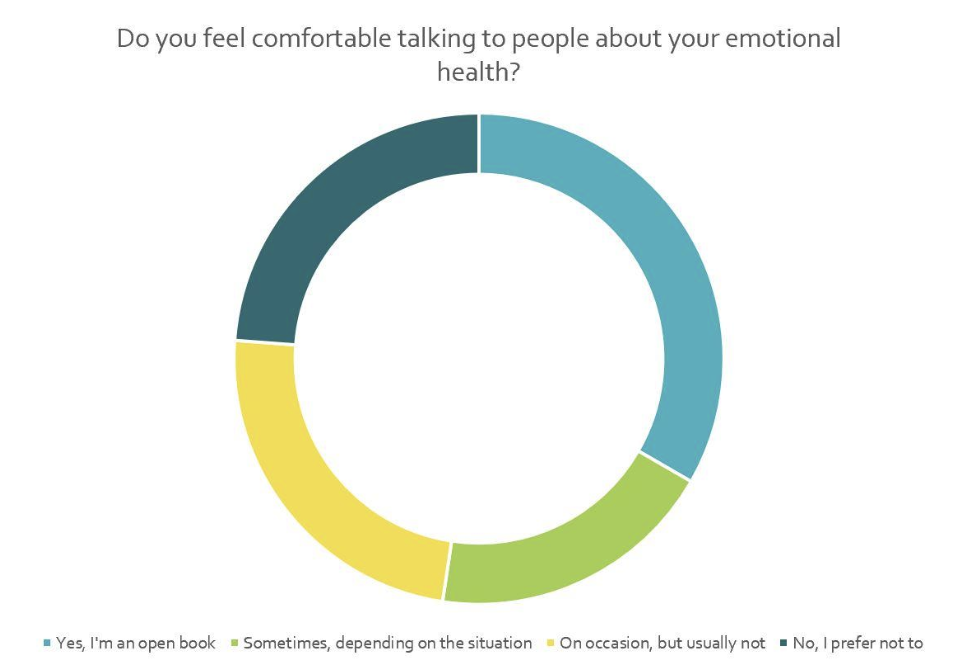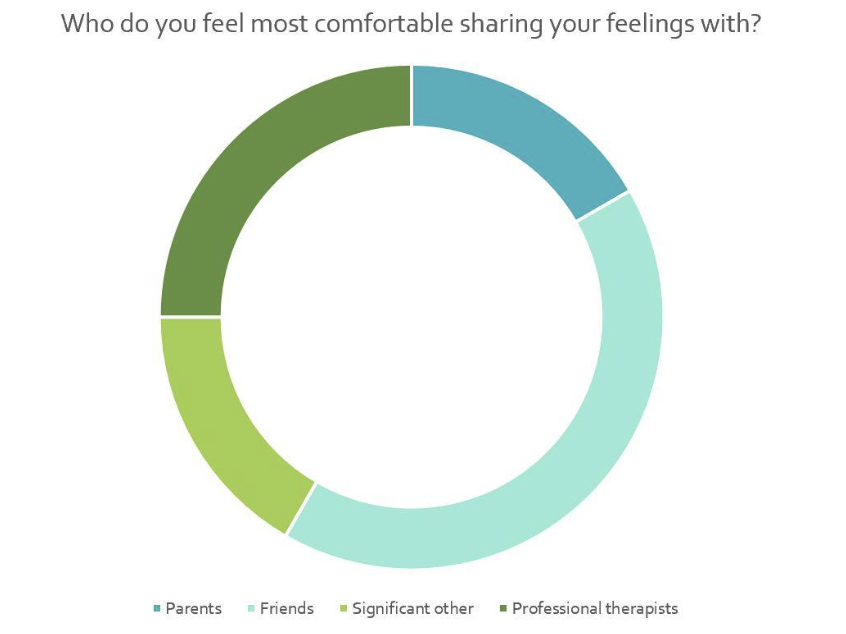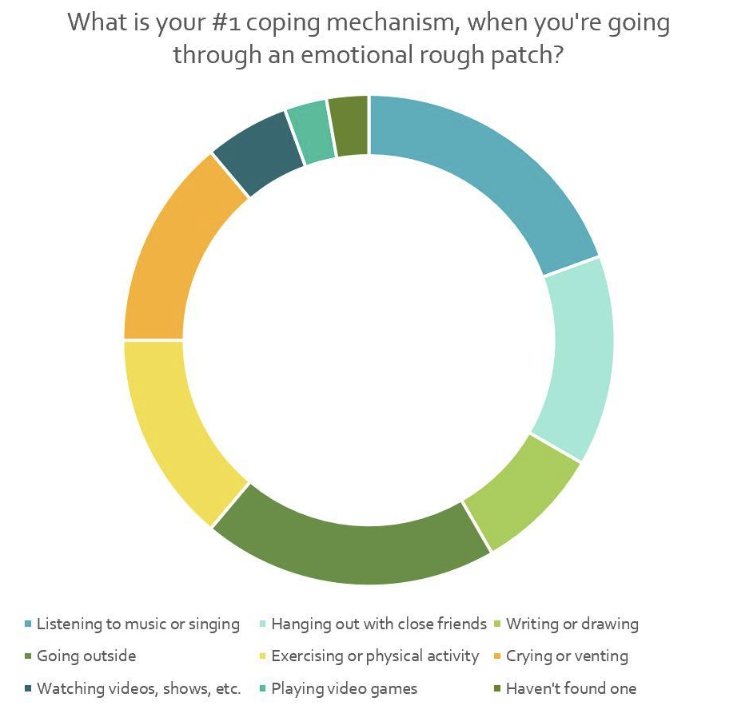As school schedules begin to settle in and exams shift from far dates on syllabi to late-night-cram realties, there is no doubt that stress builds quickly within the student body. It is difficult juggling the delicate balance of course-load, extracurriculars, relationships, and even personal health during the peak of semester activity growth, and many students find themselves overwhelmed and living only for the weekend.
Most often, these varying weights take a heavy toll on students’ emotional and mental strength, and they can come to feel helpless to school’s draining nature. Mental health is a very serious matter and can spiral dangerously if left unchecked for too long, especially if students are just pushing away emotional troubles to power through their day-to-day lives. They may start to skip class, feel constantly fatigued or suffer from anxiety.
Although the mental health de-stigmatization movement has caught momentum among America’s younger generations, the conversation on how to express bottled-up emotions is a different story entirely, and not everyone has a black-and-white morality when it comes to sharing their own feelings with others. After asking around 30 students of varying backgrounds, majors and years the following list of questions, it’s clear that not everyone rests on the same wavelength in regards to expressing themselves.
If you were going through emotional/mental health issues, would you feel comfortable talking about them?

After asking this first question, varying feelings quickly made their way to the surface. Some students grew immediately defensive, stressing their discomfort with letting others into their own head space, while others perked up and shared their willingness to talk with little hesitation. These students are indicated by the hard “Yes” and “No” bars of the graph, either completely willing or unwilling.
What’s interesting, though was the fact that many answers fell into a grey-area of “maybe, depending on…” scenarios. It is not difficult to believe that the average person would only want to confide in certain people or at certain times. Generally, it depended on how deep people felt their personal issues went that dictated what they told people.
“I am really open about past mental problems, but when it comes to current, I get hesitant to share,” one sophomore at Frost said. “I don’t like the idea of possibly burdening someone else with my struggles…I just don’t know if I’d be okay putting someone else through what I’m going through. I talk about if I’m stressed but that’s kind it.”
“Not really– I even have a hard time talking to my therapist. Even though having a mental illness is nothing to be ashamed about, I’m still slightly embarrassed by it,” said another, this time a student in RSMAS. “I don’t like to burden others with my problems, and part of me wants to be seen as the one who can hold everyone else together when they’re falling apart.”
Some students said they do not necessarily feel as if their issues would inconvenience others, but instead feel their struggles are too personal to share openly.
“I’m super introverted most of the time, and people never understand the full context [of my emotional health issues],” a freshman at Frost said. “I hate when people try to act like they know my issues, but if they just listen, then I’m all good with it.”
“It varies case-by-case, really. Everyone has a unique way of handling things, and it’s hard to talk about deeper stuff because you aren’t sure if people will understand it,” a sophomore in the business school said. “I have mental health issues that I will never tell anyone, because that’s just how I am and that’s how I deal with it.”
Who do you feel most comfortable talking to?

Of those who were willing to share their mental health status with people, answers heavily favored close friends or significant others, on the basis that they were close enough to feel comfortable divulging personal troubles to without judgement. On the other hand, those who felt most comfortable talking to therapists felt best with discussing their issues with someone completely uninvolved in their life, rather than people entwined in their daily lives.
“I would feel most comfortable talking to a therapist or a professional that’s completely removed from my life,” a RSMAS senior said. “It’s not that I feel uncomfortable talking to friends or others. It’s just that it’s a hard conversation to start, and I don’t want to be an inconvenience to them.”
There were also students who found balance in both friends and professional help.
“I generally look up my problem on the internet to see if anyone else is going through something similar, though I’ve been doing that way less and started talking to people more” said a junior engineering student. “I also went to the therapist’s office last semester a few times. Really helps.”
What is your #1 escape mechanism/self-care activity you do for yourself when you’re in a particularly low mood?

The most-popular answer was between “going outside” and “listening to music,” though the two often went hand-in-hand.
These responses included statements such as “Going outside and trying to appreciate what’s around me helps me out. I like to walk around and just take everything in,” and “Definitely going outside is a big one for me, along with listening to chill or relaxing music– just anything that makes me smile. Sometimes no music and just listening to the sounds around me works too. Nature is pretty.”
A substantial number of students preferred finding solace in being around their friends, by getting out of their rooms to be around people they deemed supportive.
“I like to spend time with my friends because it shows me that people care about me and want to help,” said a sophomore studying music education.
“When I was in high school, sometimes my friends and I would sit in my car and scream for like, ten seconds,” added a sophomore who is studying engineering.
Isaiah Manasara, a Pearson Residential Advisor, gave insight on how he tries to help those who might be struggling without much of an outlet for their emotions.
“My way of destigmatizing mental health is always to tell someone they’re not alone. I never want to devalue a person’s feelings by making them feel they’re not special, but I think it’s important to explain that all the terrible feelings they’re having are normal and that so many people are going through that,” he said. “It’s okay to feel depressed, to be anxious, to have panic attacks. What’s not okay is not doing anything about it, allowing yourself to be continuously hurt without looking for help.”
It is safe to say that, regardless of the answers investigated in this set of surveys, students do their best to cope. Whether they choose to tackle it alone or lean on others, mental health is a cloud that looms over them, and it’s important for people to know they are never alone in their struggle, whether others can sympathize or not.
Resources include:
The National Suicide Prevention Lifeline provides 24/7, free and confidential support for people in distress, prevention and crisis resources for your or your loved ones. They can be reached here: 800-273-8255
The University of Miami Counseling Center is committed to the overall well-being of UM students, and provides many services for emotional and mental health, including individual and group therapy. Students can come to the UMCC for treatment for a variety of difficulties, including depression, adjustment to campus and relationship problems. Appointments can be made online or at this number: 305-284-5511.
Canes Care for ‘Canes is student leadership group that works to raise awareness about caring and supporting the campus community. If you know a fellow ‘Cane in need, anonymous concerns can be reported here.
Surveyed students’ names have been omitted to assure honesty and confidentiality.






